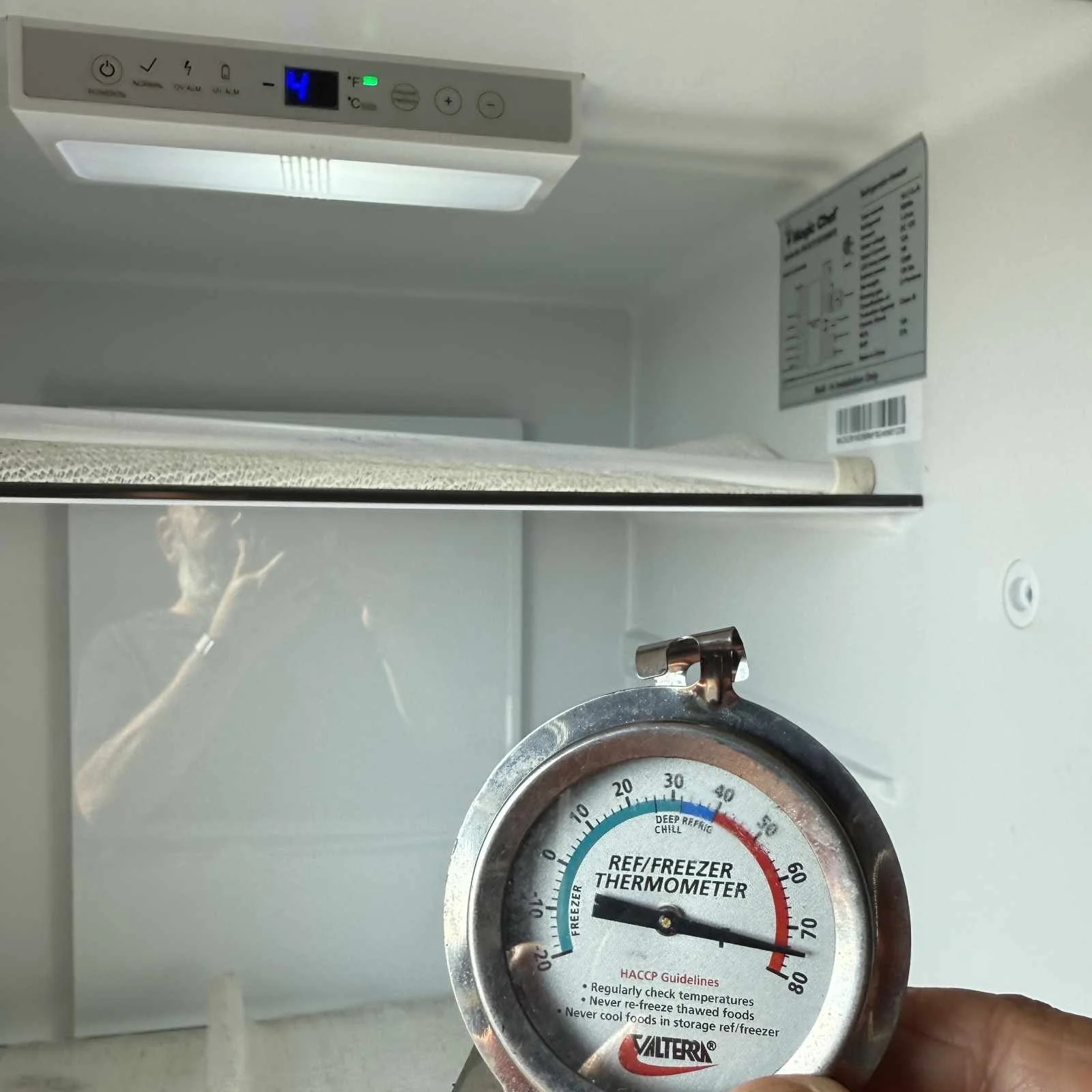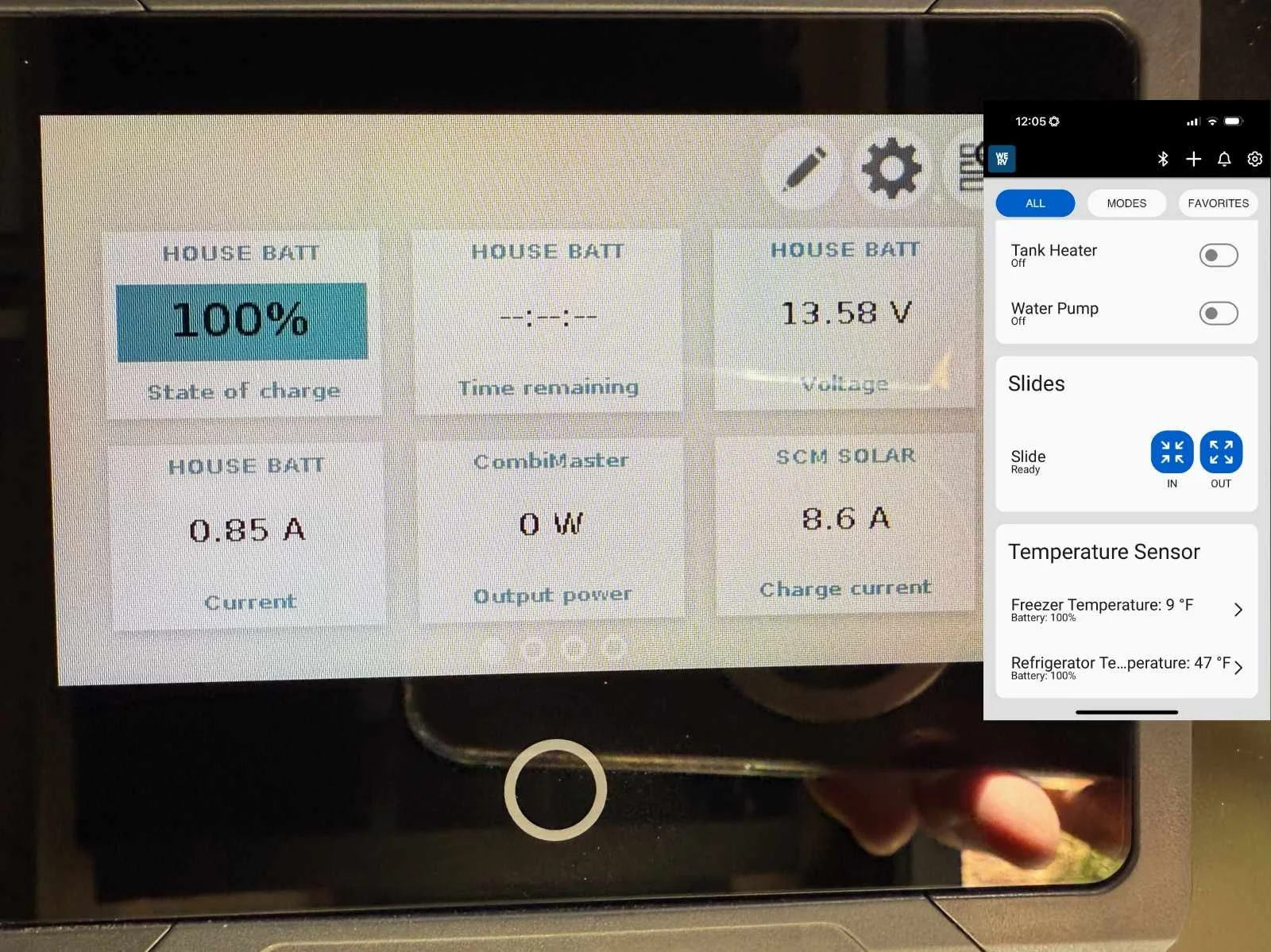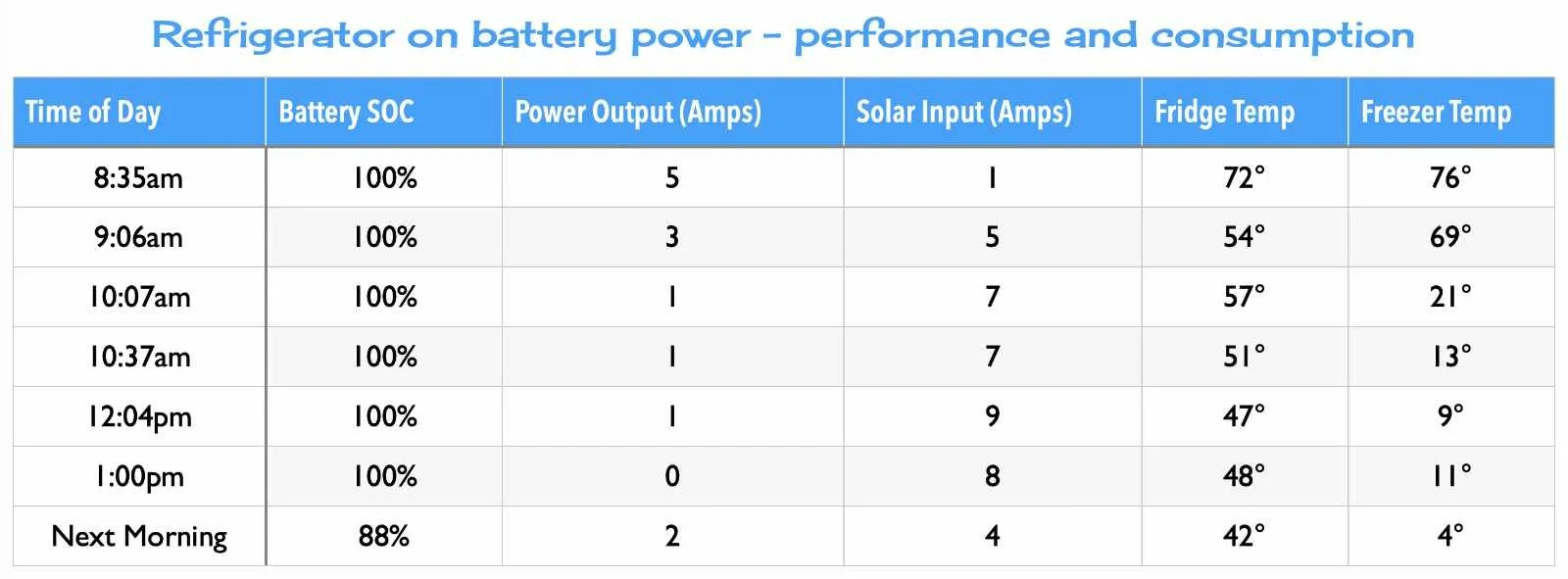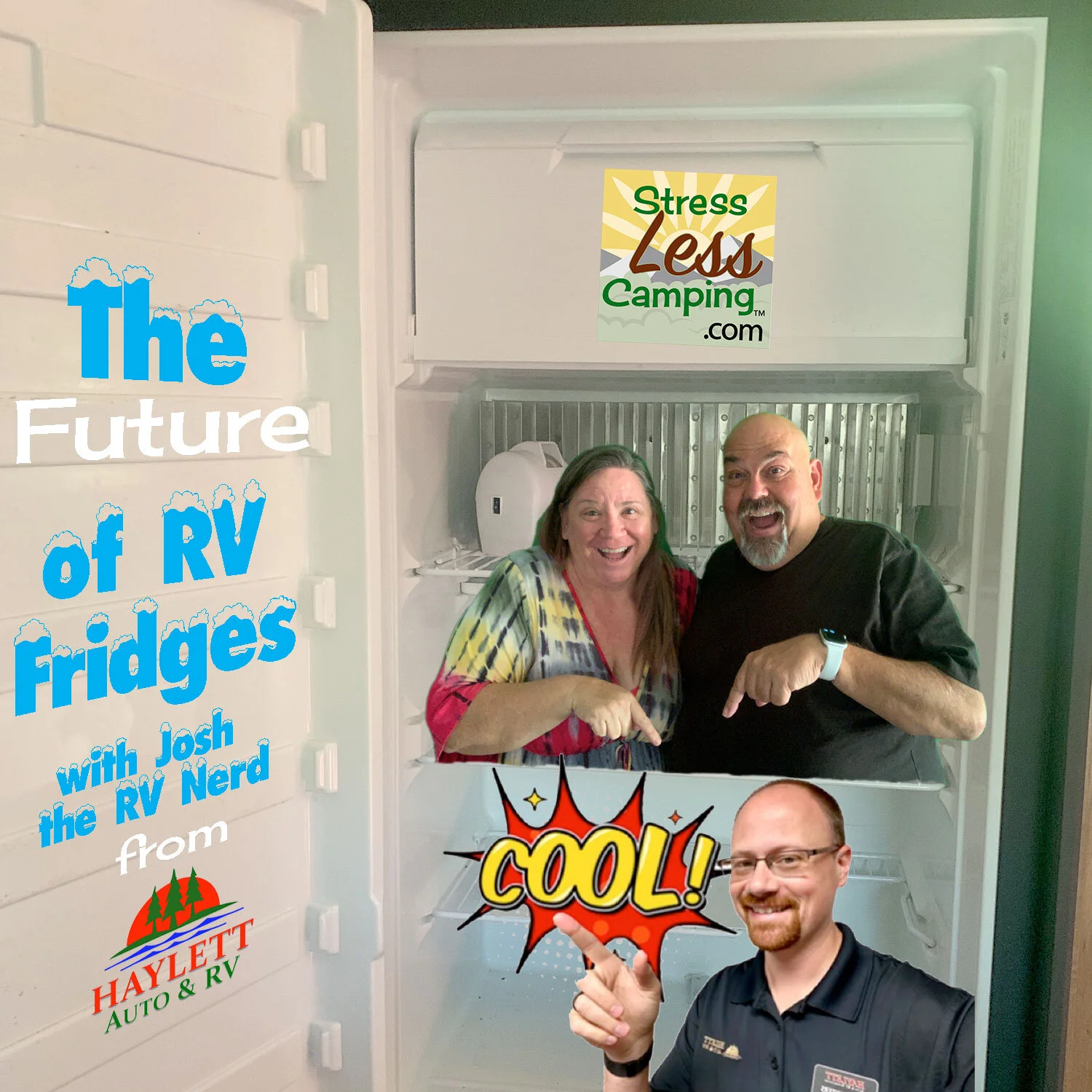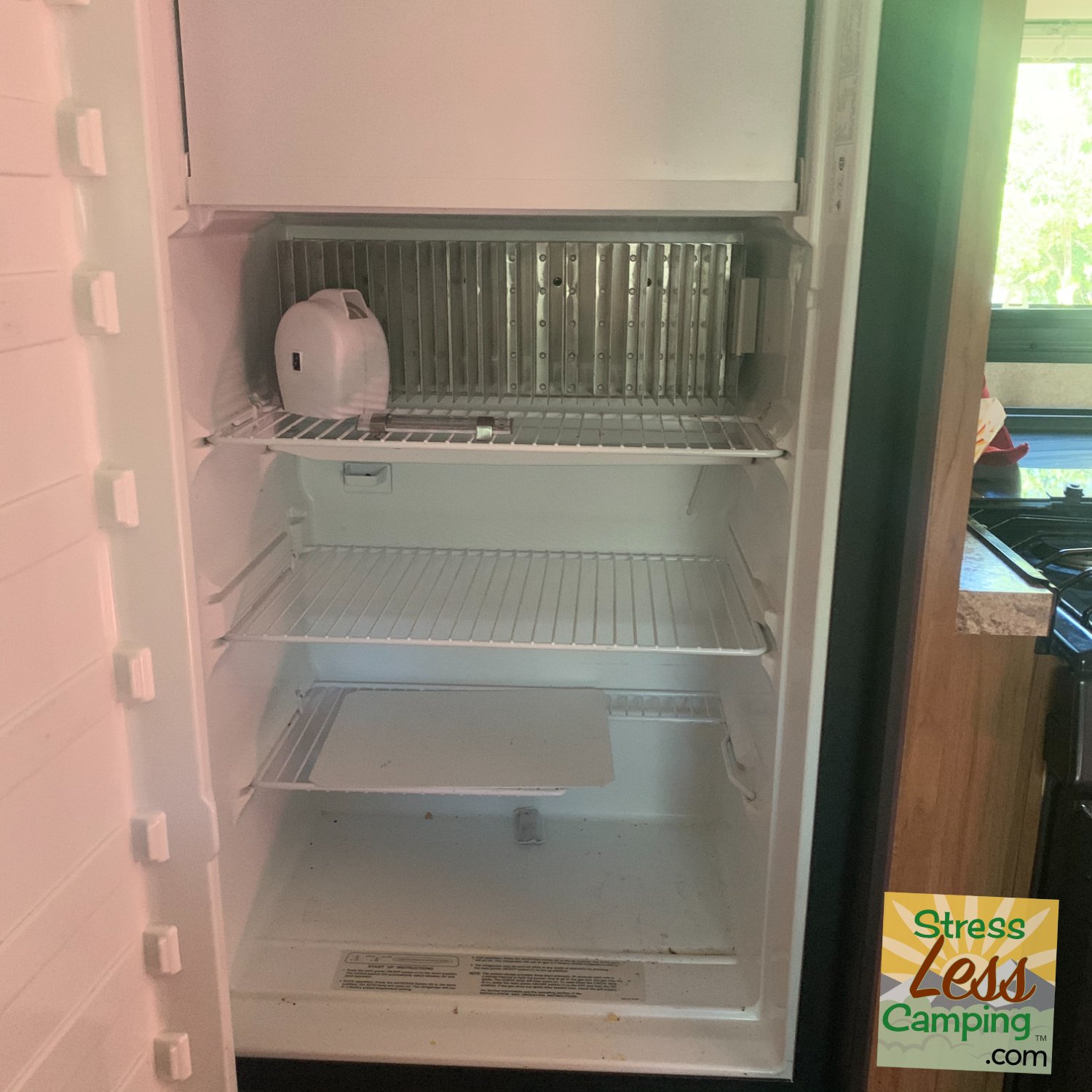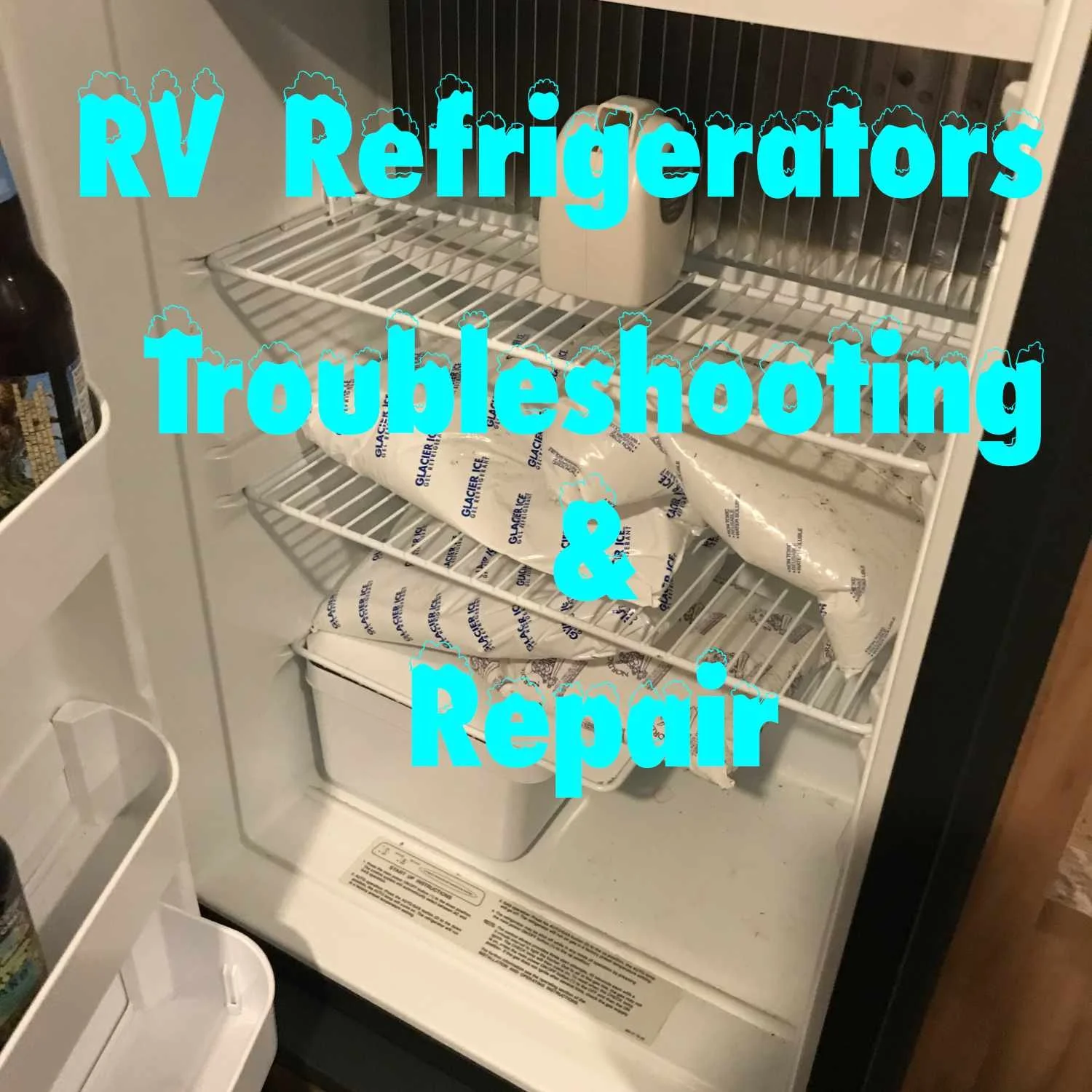How long will a 12 volt RV refrigerator run on solar
How long can I run my RV fridge on battery?
How much power does it take to run your RV’s refrigerator? How long can your RV’s 12 volt fridge run on battery power alone? How much solar do you need to run an RV fridge? I wondered myself and thought I’d conduct a test to see just what it takes to run our RV’s 12 volt fridge.
The refrigerator in question is the Magic Chef MCDCR10DSBMFB. This fridge has some neat features including the fact that the door opens from either the left or the right. No, you don’t have to re-hang the door - there’s a handle on either side - pull the right side, the fridge opens from the right. Pull the left side - the fridge opens from the left.
There have been RV fridges that worked like this for a little while but this is a newer design that won’t let you accidentally engage both latches and have the door fall on the floor. That’s a plus.
This also has a bottom drawer-style freezer which has a decent amount of space in it. With digital controls you can set the temp of the fridge and freezer separately, also nice.
My first impression
This is now the fourth 12 volt RV refrigerator that we’ve had. This particular unit is now standard on the Rockwood Mini Lite line. This is virtually identical to the Furrion FCR10DCGBA-BG-DS
We have an article on RV 12 volt fridges and why we swapped ours out here.
My first impression of this fridge is that it’s really well designed. I also perceived that it is remarkably efficient and this test backed that up. I’ve written that not all RV 12 volt fridges are alike and that some are much better than others.
How long did my fridge last on battery power?
To thoroughly test the power consumption of this fridge I had the unit powered off for over a week. Just to be sure. Then I hit the power button and checked in with our MasterVolt power system readout.
The fridge started with a reading of 72° F in the fridge and 76° F in the freezer according to our Lippert RV refrigerator monitors. The MasterVolt system reported that it was delivering a scant five amps of power.
The initial temperature reading of the fridge with our dial fridge thermometer.
It took over three hours to go from 72°F in the fridge to food-safe 41°F which is longer than I expected in a 12 volt compressor-based fridge.
I went back about every half hour or so to check the system as this chart shows. The most consumption the MasterVolt system reported was five amps but several times it reported zero, even though I could hear the fridge doing something.
What I suspect is that, since this is a bottom freezer model, there is a fan inside that is circulating the cold from the freezer up to the refrigerator which has such a small draw that it doesn’t get reported on the MasterVolt control panel. Yes, I do have a call in to Lippert about this because I’m curious.
Another interesting thing is that, overnight, the system reported a drop of about 12 percent of the battery reserves on the 460 amp-hour lithium battery we have. That means that, overnight, there is about 56 amp hours of power being drawn by the fridge (there wasn’t much of anything else running except the CO detector).
These things tend to use less energy overnight simply because you’re not opening and closing the door. Also know that the test was done with an empty fridge - it may have been a bit more efficient if I had started with a fridge full of cold beer or something like that. Liquids tend to change temperature more slowly and thus make them run more efficiently.
If memory serves the Dometic fridge in the last trailer used about 65-70 amp-hours of power overnight and the GE fridge in the first trailer that we had with a 12 volt fridge would suck about 80 amp-hours overnight. So I was correct, this is a much more efficient fridge.
But it’s also significantly quieter than that GE which became a joke because we could hear it noisily kicking on the compressor. The Dometic was much better (in so many ways) but this is still the quietest model we’ve had.
The combined power consumption and refrigerator temperature readings during our test.
How much battery do I need to run an RV refrigerator?
In any modern RV with a 12 volt refrigerator I would recommend at least 200 amp hours of battery reserves. Why? Perhaps a single 100 amp hour battery might suffice to run the RV off the grid overnight but if you’re talking 1-3 days without much sun, you’ll need more reserves.
No matter how much solar you have know, too, that there is no sun overnight and that’s when the battery reserves come into play. If it’s colder and your furnace kicks in overnight the blower fan on the furnace likely consumes even more power than the refrigerator will. It’s remarkable how much power the furnace can consume so if you’re overnighting and you don’t have enough battery reserves, you could experience problems.
We have an article and podcast on RV power basics.
RV refrigerator technology
There are two major ways that refrigerators refrigerate. There is what is called gas absorption and then there is a compressor-based fridge. Again, know that this is a simplified and generalized description - there are nuances. There are always nuances.
Compressor refrigerators
Almost invariably your home has a compressor-based fridge. This is a technology that goes back to the early days of refrigerators and is a proven system that really works well. In very simplistic terms, a compressor compresses a refrigerant that cycles through tubes and expands. This expansion cools the refrigerant and creates the cold we want.
Your home refrigerator likely uses a 120volt motor to run the compressor simply because that’s what’s coming out of the wall plug that you’ve plugged the refrigerator into. That’s the common household current we have in the U.S.
Newer RV refrigerators use 12 volt to run the motor because that’s what’s native in the RV’s battery system. By using the 12 volt native system you don’t have to run any inverters or converters which reduces complexity but also increases efficiency.
One big advantage of this type of refrigerator is that it doesn’t require venting to the outside. They are also more temperature stable in a wider variety of ambient temperatures. In other words, they work when the outside temps are high and when they’re low. The higher the outside temp, the longer they run the compressor.
Another advantage of compressor-based fridges is that many of them have a defrosting mode so they remain frost-free. The compressor mechanism is also much smaller than the gas absorption system so you get more usable space than in a comparably-sized propane-electric fridge.
Gas Absorption Refrigerators
The propane-electric refrigerators that have been in RVs for decades use convection to change temperature. Essentially a heat source heats a bulb of an ammonia mixture which causes it to expand up into a series of tubes.
On the inside of gas absorption refrigerators are a series of cooling fins. The ammonia mixture gets into tubes that are in contact with these cooling fins. As the gas mixture expands, it cools and that’s what makes your refrigerator refrigerate.
Since the core of this system is heating the ammonia mixture you can do that with fire, as in a propane burner, or with an electrical element. That’s how these fridges use propane or electricity to operate. Some of the more expensive examples can use propane, 120vac household current or even the native 12vdc in your RV. These three-way fridges are really convenient but they’re the most expensive.
The distinct advantage of this type of system includes the fact that there have essentially no moving parts. It’s all just heating that ammonia mixture so they’re very structurally simple.
There are disadvantages, though. These systems need vents at the top and the bottom so you have to have these vents cut into the side of your RV. That also limits the placement of these fridges as they almost have to be on an outside wall.
If the RV is still (such as in a campground or in your driveway) it has to be within 3° of level to operate the fridge or you can actually damage the heating system. The combination of coils and fins also consumes a relatively large space in the refrigerator cabinet taking away some of the storage space for beer and such inside the fridge.
Also, these fridges do need to be manually defrosted.
While many RVers keep their propane fridges operating while driving down the road best practices dictate not to do this only because you have a propane flame, a large supply of propane and a source of ignition. We have an article about running your propane fridge while driving - is it safe? Read on.
There are some RVers who are able to run these fridges on either 12 volt DC or 120 volt AC power while driving.
I know a guy
I spoke with an engineer last year at RV Open House about RV refrigeration and air conditioning which are sort of the same thing, right? You’re taking an insulated box and changing the temperature in it.
I had spoken of my first experience with 12 volt fridges and how much battery power that first fridge consumed. I was rather disappointed. That engineer said things are progressing very rapidly in this space and some of the newer options are remarkably more efficient than they used to be. When I got the current RV with the new refrigerator in it I was impressed with how little power it seemed to consume. That’s why I did this test.
But, if you’ve experienced 12 volt fridges in the past and been disappointed I wouldn’t put aside all 12 volt fridges. I swapped my first lousy GE fridge for a Dometic unit and found that that fridge was much more efficient than the first one and had better features, too. So the companies that make these are listening and refining what they’re doing and today’s 12 volt RV refrigerator can be remarkably better than ones from even a couple of years ago.
Our gas absorption propane-electric refrigerator
I still want a propane fridge
It’s getting ever more difficult to find a gas absorption fridge for a variety of reasons. The newer 12 volt fridges run natively on the power that’s already in the RV. They also don’t require that a propane line be run to the fridge with the inherent challenges that presents. There is no open flame to contend with either.
And, the fact that you don’t have to vent a compressor fridge to the outside gives RV designers more flexibility with their designs.
But there are a good number of people who like to camp off-grid who prefer the gas absorption refrigerator. They are still available in a number of RVs as an option. However if you find a new RV that doesn’t offer this feature it may be difficult to add it just due to the venting required for the propane-electric fridge.
There are also aftermarket companies that make gas absorption installation kits and replacement systems for gas absorption refrigerators. If you’ve decided that this is what you want and you’re able to source a used but non functioning gas absorption fridge, perhaps you would do okay to just replace the mechanism with a new one. One of the companies who does this that I have heard good things about is JC Refrigeration in Shipshewana, Indiana outside of Elkhart (where many RVs are made).
What about residential refrigerators?
Many larger RVs, motorhomes in particular, use residential refrigerators. The advantage of these is that they tend to be larger and also incorporate features such as ice makers and more. Many RVers have run residential refrigerators with great success for years.
But do know that they can only operate on 120vac which means you have to have a source for household power. Now it’s entirely possible to use the battery, any solar and the engine’s power along with an inverter to achieve 120vac which means you can run the fridge as you shuttle down the road.
My experience with residential refrigerators is that they can be a challenge in a warranty situation. As someone who managed warranties at an RV dealership I found that, when they was a warranty claim, refrigeration techs wouldn’t work on residential refrigerators in RVs and RV techs didn’t know how to troubleshoot them. Often if we had a failure or issue we would just replace the refrigerator. In some RVs that meant either taking the slide room out or removing a windshield in some Class A RVs - the larger residential refrigerators wouldn’t fit through the RV door.
Also, residential refrigerators aren’t always well suited to the bouncing and vibration in an RV - they’re typically designed to be in a permanent location. Another consideration is that many RVers companies enclose residential refrigerators in cabinetry which may not provide sufficient space for them to breathe.
While many many RVers love residential refrigerators in their rigs and have experienced plenty of trouble-free operation, I am not a fan as someone who used to manage warranties. Things tend to be fine - until they’re not.
Conclusions
The guy at Lippert was right - this newer fridge is better in every way than the two I’ve had previously. It’s quieter, more efficient and the doggone door swings two ways. Who doesn’t love that?
So if you’ve had a lousy experience with 12 volt fridges perhaps it’s just the 12 volt fridges you’ve had an experience with. Thus far this one’s my favorite and I like it much better than my old gas absorption fridge. We do a lot of boondocking but that’s why we installed a big solar and lithium system in our trailer. I’m sure they’re going to continue to get better.



